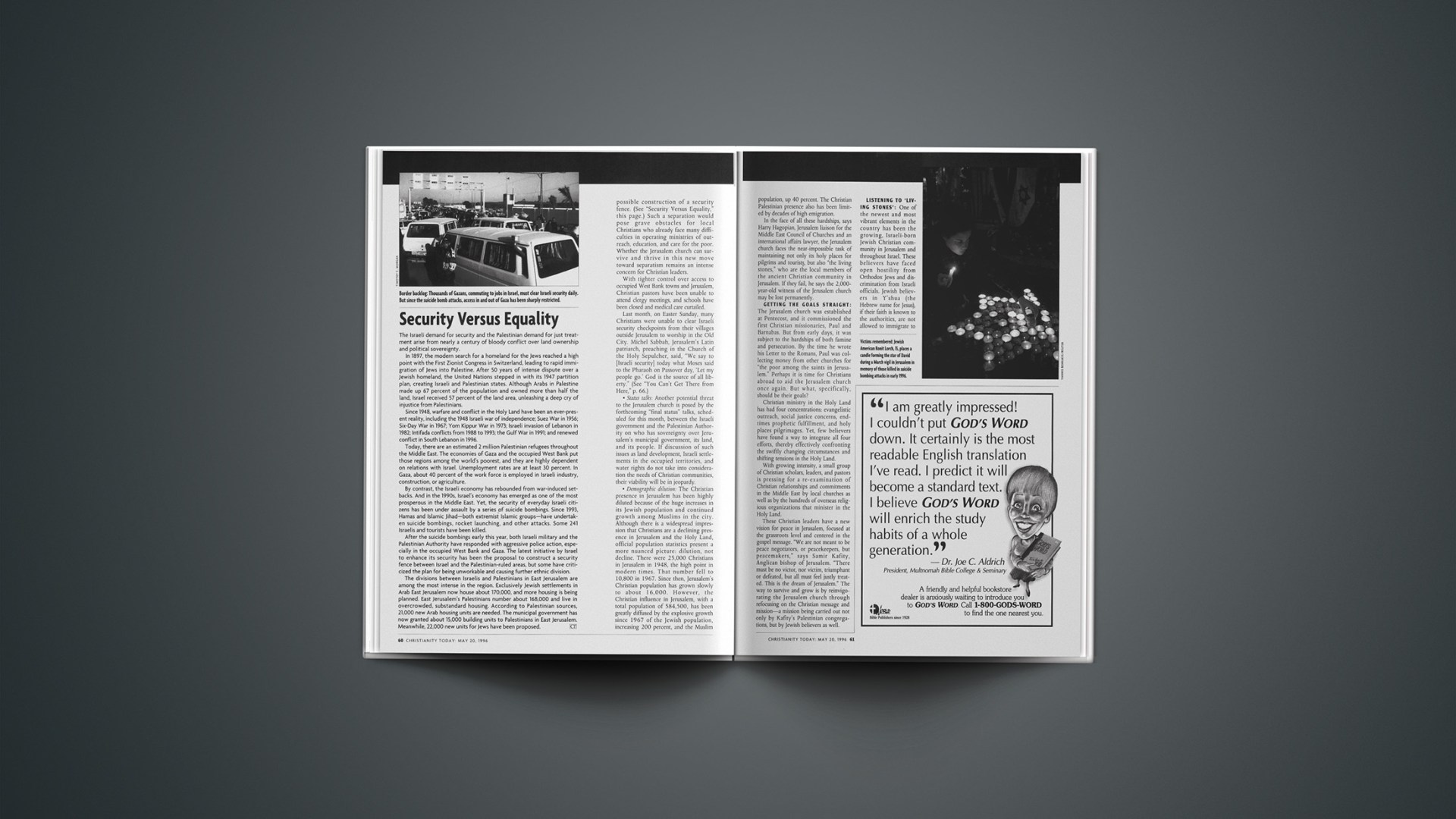The Israeli demand for security and the Palestinian demand for just treatment arise from nearly a century of bloody conflict over land ownership and political sovereignty.
In 1897, the modern search for a homeland for the Jews reached a high point with the First Zionist Congress in Switzerland, leading to rapid immigration of Jews into Palestine. After 50 years of intense dispute over a Jewish homeland, the United Nations stepped in with its 1947 partition plan, creating Israeli and Palestinian states. Although Arabs in Palestine made up 67 percent of the population and owned more than half the land, Israel received 57 percent of the land area, unleashing a deep cry of injustice from Palestinians.
Since 1948, warfare and conflict in the Holy Land have been an ever-present reality, including the 1948 Israeli war of independence; Suez War in 1956; Six-Day War in 1967; Yom Kippur War in 1973; Israeli invasion of Lebanon in 1982; Intifada conflicts from 1988 to 1993; the Gulf War in 1991; and renewed conflict in South Lebanon in 1996.
Today, there are an estimated 2 million Palestinian refugees throughout the Middle East. The economies of Gaza and the occupied West Bank put those regions among the world’s poorest, and they are highly dependent on relations with Israel. Unemployment rates are at least 30 percent. In Gaza, about 40 percent of the work force is employed in Israeli industry, construction, or agriculture.
By contrast, the Israeli economy has rebounded from war-induced setbacks. And in the 1990s, Israel’s economy has emerged as one of the most prosperous in the Middle East. Yet, the security of everyday Israeli citizens has been under assault by a series of suicide bombings. Since 1993, Hamas and Islamic Jihad–both extremist Islamic groups–have undertaken suicide bombings, rocket launching, and other attacks. Some 241 Israelis and tourists have been killed.
After the suicide bombings early this year, both Israeli military and the Palestinian Authority have responded with aggressive police action, especially in the occupied West Bank and Gaza. The latest initiative by Israel to enhance its security has been the proposal to construct a security fence between Israel and the Palestinian-ruled areas, but some have criticized the plan for being unworkable and causing further ethnic division.
The divisions between Israelis and Palestinians in East Jerusalem are among the most intense in the region. Exclusively Jewish settlements in Arab East Jerusalem now house about 170,000, and more housing is being planned. East Jerusalem’s Palestinians number about 168,000 and live in overcrowded, substandard housing. According to Palestinian sources, 21,000 new Arab housing units are needed. The municipal government has now granted about 15,000 building units to Palestinians in East Jerusalem. Meanwhile, 22,000 new units for Jews have been proposed.
Copyright © 1996 Christianity Today. Click for reprint information.










